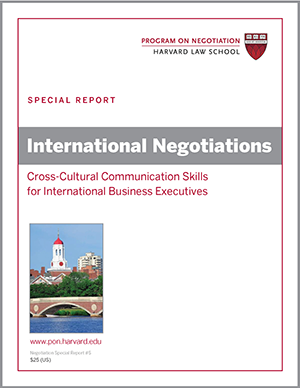
Since 1995, representatives of most of the world’s nations have gathered each year in a different locale to try to negotiate solutions to an every-mounting crisis: climate change. These United Nations (UN)–hosted conferences of parties (COPs) have achieved varying degrees of success at fostering unity and agreement, with divisions between two main factions—developing and industrialized nations—remaining a perennial stumbling block.
COP29, held in November 2024 in Baku, Azerbaijan, got off to a rocky start and never seemed to gain its footing. Though it ended in new commitments from industrialized nations, developing nations found the new promises to be woefully insufficient. Overall, the conference highlights the pivotal role of negotiation location.
The Negotiation Location: A “Dark Joke”?
COP29 was troubled from the get-go, beginning with the choice of location: Baku, Azerbaijan. The country is almost wholly reliant on fossil fuels for its wealth; oil and gas make up 90% of its exports. Moreover, Azerbaijan is widely considered an authoritarian state, with well-documented corruption and human rights abuses. In the lead-up to the conference, Human Rights Watch identified 33 cases of trumped-up criminal charges against activists and journalists.
Climate activist Greta Thunberg called the choice of location a “dark joke” and boycotted the COP, as did several smaller countries, including Papua New Guinea. France also boycotted the talks, after Azerbaijan president Ilham Aliyev, in a speech to island leaders, criticized France and the Netherlands for contributing to climate change through “neocolonialism,” according to Politico.
How did a petrostate come to host the world’s annual climate change conference? Through “geopolitical maneuvering,” writes Carol Schaeffer for the Nation. The conference was slated to be held in Eastern Europe, but Russia vetoed the choice of any European Union country. Russia cut a deal with Armenia, which voted for Baku in exchange for the release of prisoners.
A Rocky Beginning
In a speech on the summit’s second day, President Aliyev called fossil fuels a “gift of God” that deserves to be brought to market “because the market needs them. The people need them,” the BBC reports.
During the conference, a representative of human rights organization Global Witness posed as the head of a Hong Kong investment firm to win a meeting with a senior official on Azerbaijan’s COP29 team, Elnur Soltanov, a deputy energy minister who serves on the board of the state’s oil and gas company, Socar. Global Witness secretly recorded Soltanov talking about “investment opportunities” in Socar, including plans to increase gas production—a “serious breach of standards” for a COP conference, according to the BBC.
In an open letter, a group of top climate experts and former UN leaders, including former UN Secretary General Ban Ki-moon, called for countries that support fossil fuel extraction to be excluded as COP negotiation locations. They also urged a “shift away from negotiations to the delivery of concrete action.”
Mounting Frustration
The primary aim of COP29 was to raise money to help developing nations reduce and address climate pollution. According to one report, these nations will need at least $1.3 trillion per year to respond effectively to climate change. Yet during the conference, industrialized nations floated much lower numbers.
Representatives of developing nations were frustrated by the offers and by the negotiation process itself. Throughout, the process led by the Azerbaijani hosts “seemed either deliberately slow or simply disorganized,” according to the New York Times.
The reelection of Donald Trump as US president cast doubt over whether any negotiated agreement reached in Baku would remain in force, according to the Council on Foreign Relations. Trump has vowed to withdraw the United States from the 2015 Paris climate change agreement, as he did during his first term in office.
As the two-week summit went into overtime, the chair of a bloc called the Least Developed Countries, Evans Njewa, “took the floor and explained how frustrated he was,” Michai Robertson, the finance director of the other group, the Alliance of Small Island States, told the BBC. “You’re not hearing us,” Njewa reportedly said. “Everyone stood up with him and then we just left,” according to Robertson, referring to the two blocs of developing nations.
“As soon as we did that, everyone was calling us—the COP presidency, developed countries, the chair of G77 [a larger bloc of developing countries],” said Robertson. “It’s really sad that it took us walking out to get that.”
Reluctant Acceptance
In the end, developing nations felt they had no choice but to accept the deal that industrialized nations were offering: $300 billion, most of it in the form of loans rather than the grants that developing nations said were essential to avoid going deep into debt. “It’s a paltry sum,” Chandni Raina, a member of India’s delegation, told NPR. Moreover, the agreement is not legally binding.
“Let me be crystal clear,” said Juan Carlos Monterrey, Panama’s climate envoy. “This process was chaotic, poorly managed, and a complete failure in terms of delivering the ambition required.”
In negotiation, the meeting place is often treated as an afterthought. But as COP29 illustrates, negotiation location can have an outsized influence on negotiation success.
What lessons have you learned from your own experiences with negotiation location?





